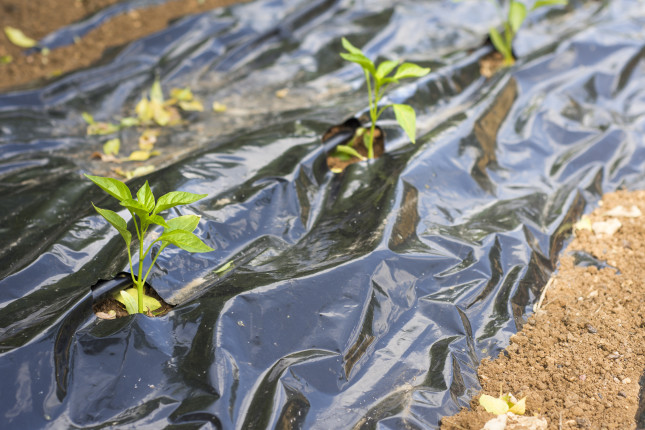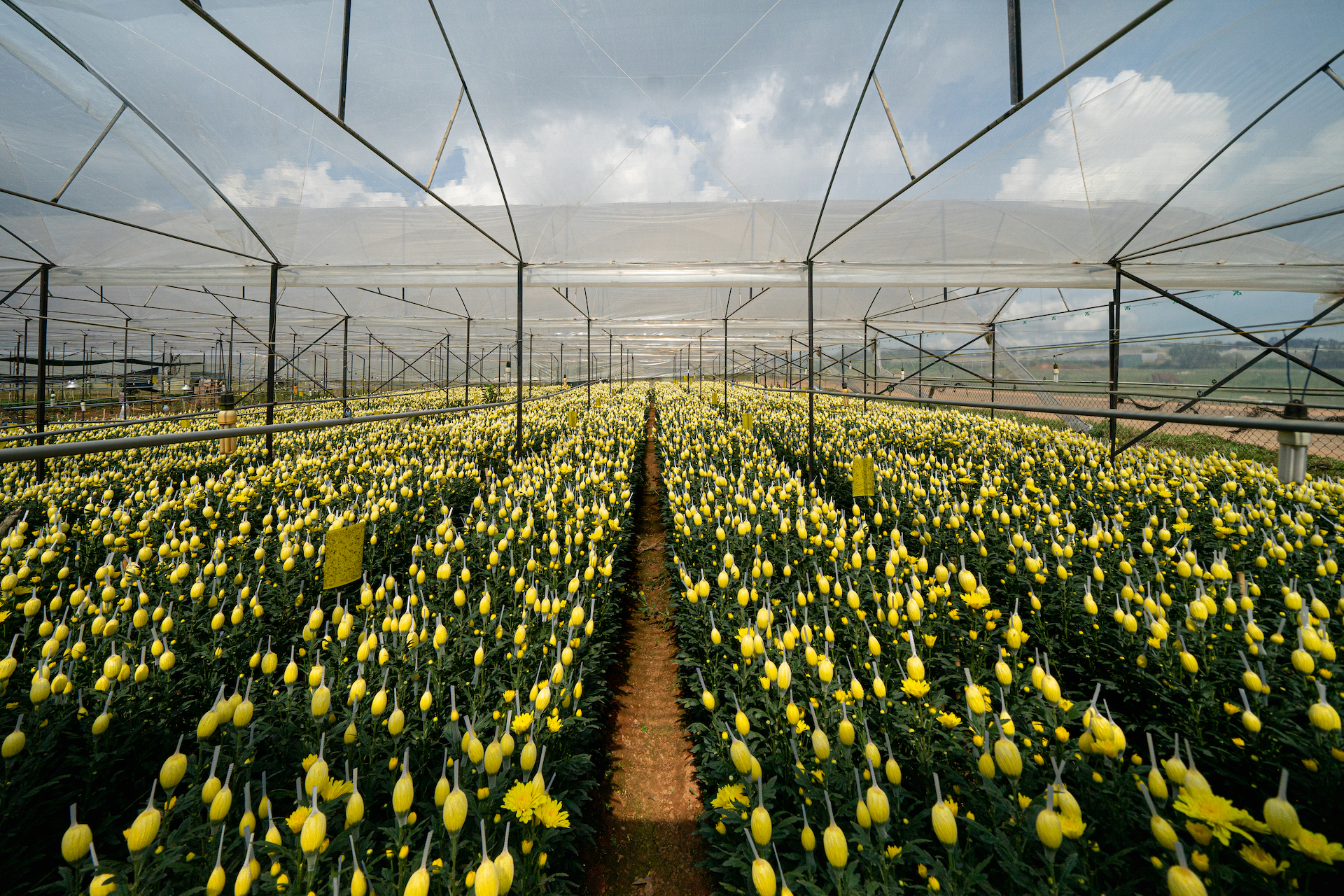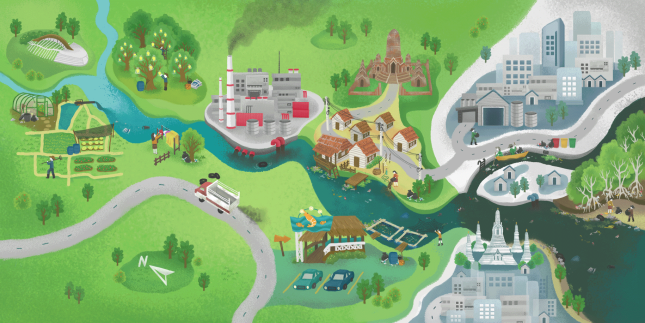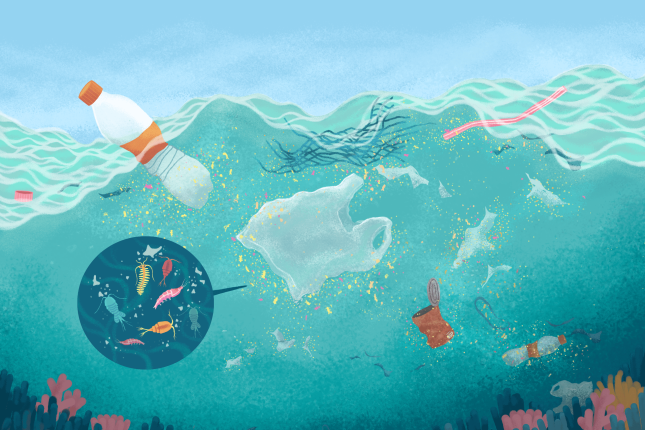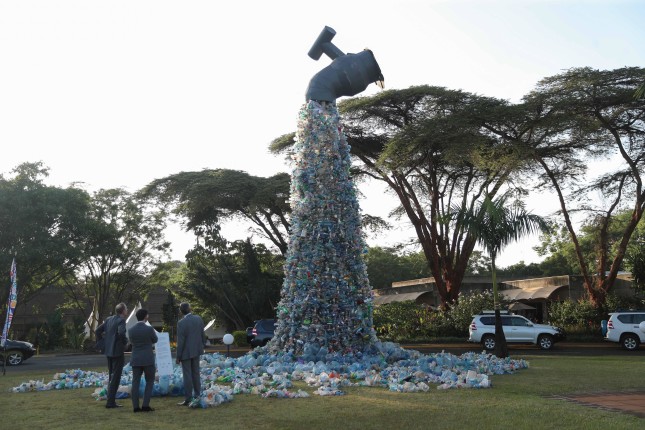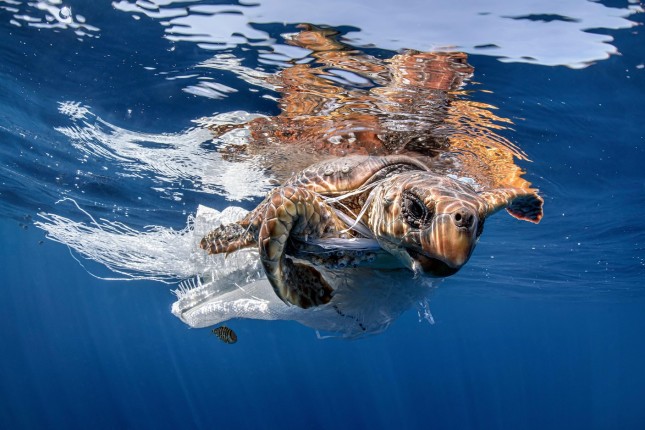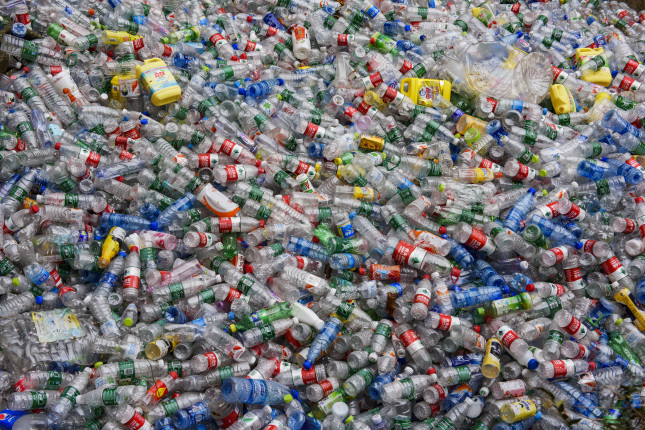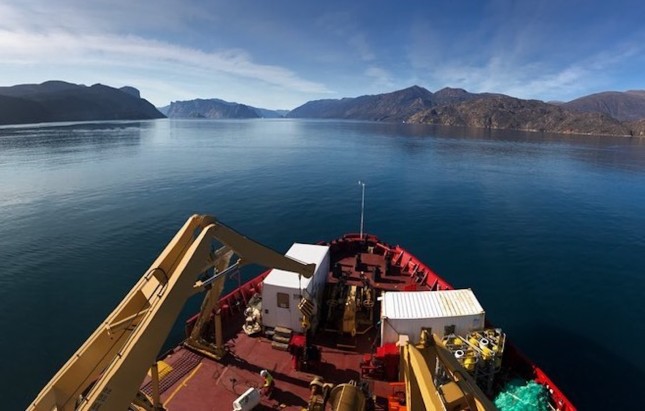-
Biodegradable Plastic in Chinese and U.S. Agriculture: Hero or Villain?
›Biodegradable plastic mulch seems like a dream come true for organic farming. Its use eliminates the need for herbicides and pesticides, conserves water, extends the growing season, and allows for the harvesting of clean fruits and vegetables. This mulch also lightens the load of farmers. Rather than assuming the expense and labor to gather up and haul plastic mulch to a landfill, farmers can till biodegradable mulch safely back into the soil. Yet these benefits will only be realized if biodegradable mulch films are 100 percent degradable by microbes in nature, and if they break down to carbon dioxide, water, and minerals without damaging the soil. -
Greenhouse Plastic Boom Blights Vietnam’s Vegetable Basket
›China Environment Forum // Guest Contributor // Vulnerable Deltas // June 30, 2022 // By Govi Snell & Thinh DoanCam Ly landfill was, until it was shut down in 2020, the primary dumping ground for the city of Dalat. A hilltop locale 5 kilometers from central Dalat, the landfill was the final destination for the majority of plastic used in agriculture in Vietnam’s Central Highlands region. But in August 2019, heavy rain prompted an outpouring of trash, sending plastic sheeting from greenhouses and untreated agrichemical bags and bottles rushing downhill. The incident covered lowland farms in thousands of metric tons of waste. -
Plastic River: Following the Waste That’s Choking the Chao Phraya
›China Environment Forum // Guest Contributor // Vulnerable Deltas // June 16, 2022 // By Wanpen Pajai & Mailee Osten-Tan (Photographer)The Chao Phraya River is born from mountain streams in northern Thailand, flowing hundreds of kilometers south to the sea. By the time the river travels through Bangkok and empties into the Gulf of Thailand, it is carrying huge quantities of plastic waste – an estimated 4,000 metric tons every year, equal to the weight of 26 blue whales. The plastic clogs the river along its course, drastically impacting communities and the waterway’s ecology. The Third Pole traveled from the Chao Phraya’s beginnings to the sea to explore what’s happening to one of Southeast Asia’s most important rivers. -
How plastic is fueling a hidden climate crisis in Southeast Asia
›With sea level rise and ecological collapse threatening its environment and the very existence of its main coastal cities, Southeast Asia is one of the regions most at risk from the impacts of climate change. But while countries around the world step up efforts towards decarbonization and reaching their shared climate goals, carbon remains unchallenged – in the form of plastic – and firmly entrenched in Southeast Asia’s economy.
-
World’s Nations Commit to Ending Plastic Waste
›The United Nations has laid the foundation for negotiations to begin on the world’s first legally binding treaty to end plastic pollution. At the United Nations Environment Assembly (UNEA) in Nairobi earlier this month, the parameters were set for a future treaty, including hard-won provisions to address the full life cycle of plastics and tackle waste in all environments, not just the ocean.
-
UN Meeting Sets Sights on Global Plastics Treaty
›
In Nairobi this month, the world’s governments will discuss the path towards the first global treaty to tackle plastic pollution. But with multiple proposals on the table, the scope and ambition of a potential treaty hangs in the balance.
-
The Climate Footprint of Plastics and the Need for a Global Solution
›U.S. efforts to reclaim its climate change leadership, as demonstrated at COP26 in Glasgow, will be undermined if the country does not also step up and accelerate action on reducing plastic waste. Plastic is packing a serious carbon punch along its entire supply chain, from oil extraction and manufacturing to disposal. According to Beyond Plastic’s new report, The New Coal: Plastics and Climate Change, the U.S. plastic industry’s contribution to climate change will exceed that of coal by the year 2030.
-
Blue Jeans Contaminating Blue Oceans: The Expanding Microfiber Footprint of Our Clothes
›The Arctic is believed to be a pristine environment, far removed from littered city streets and toxic industrial emissions. I study human pollution and I found it hard to believe that my fellow researchers and I would find so much litter out here. It was even harder to believe that what we uncovered closely resembled the contents of my own closet, over 3,000 kilometers (2,000 miles) away in Toronto.
Showing posts from category waste.


